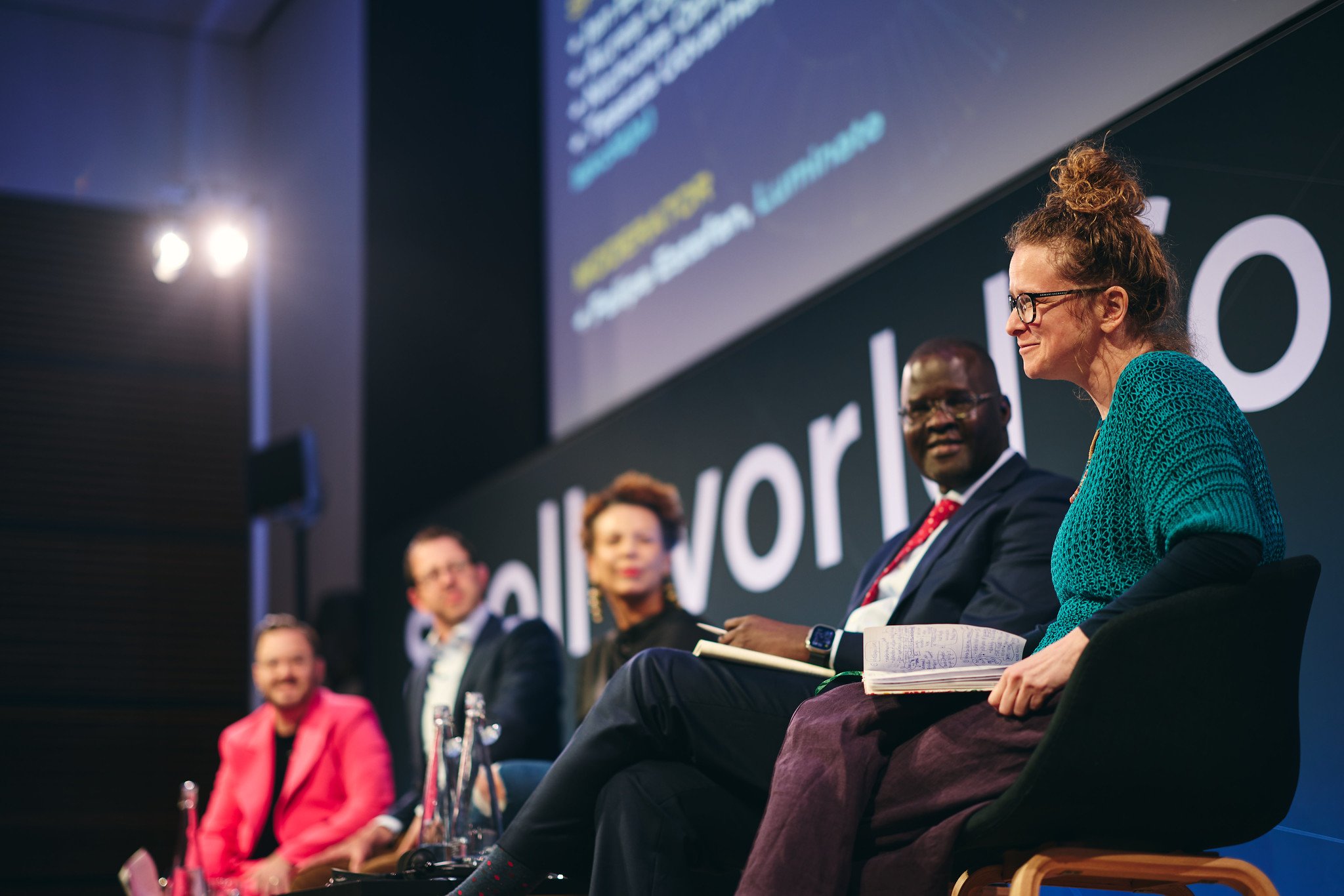Threats to Democracy – and How to Fight Back – Take Center Stage at Skoll World Forum
Global leaders and activists took on rising authoritarianism around the world and shared ways to fight back and boost positive leadership.

Felipe Estefan, Ian Bassin, Áurea Carolina, Nicholas Opiyo, and Tessza Udvarhelyi, Beyond The Vote: Innovating Our Everyday Democracies – Nelson Mandela Lecture Theatre Skoll World Forum 2024
How to fight back against growing authoritarianism, instability and other threats to democracy took center stage Wednesday at the Skoll World Forum at the University of Oxford.
In a world rife with challenges from climate change to unchecked authoritarianism, and ongoing conflicts in Ukraine, Gaza, Myanmar, Haiti, Sudan and elsewhere, leaders at the Skoll World Forum urged the politicians, activists, social entrepreneurs and philanthropists to seek solutions.
Former New Zealand prime minister Jacinda Ardern and former Ireland president Mary Robinson at Wednesday’s opening plenary session offered their assessments of leadership and the state of the world before a record audience of more than 1,500 people from around the world.
Robinson, who now chairs The Elders, a group of independent global leaders working for peace, justice and human rights, noted that “the world has gotten progressively more difficult” in recent years. “And it’s now at its most difficult,” she said, because many places in the world lack “fair, honest, consistent leadership.”
She also cited “the pressure of social media, which is making everything short term and immediate. So people want populist answers to everything – even though things are complicated.”
Ardern opened with optimism. “The vast majority of leaders are there because they want to do good,” she said, recalling that she told her team when she took office in 2017 that she wanted her administration to be known for kindness.
Panels throughout the week will look at the underpinnings of these threats and conflicts, and ways to mitigate them.
The recent rise of authoritarianism across the globe is neither surprising nor unprecedented, Ian Bassin, co-founder and executive director of Protect Democracy, said during a panel discussion Wednesday.
“In moments of rapid change and anxiety, when people feel that history is accelerating at a pace that is destabilizing, and people are nervous about the future, it is tempting when someone comes along and says, ‘I alone can fix it,’” Bassin said. “That has been a temptation throughout history.”
“Our job now is to remind people that that temptation never turns out well in the long run,” he said. “We have to push back against the fear that tempts us to turn power over to a demagogue.”
Human rights lawyer Nicholas Opiyo, executive director of Chapter Four Uganda, an independent organization that advocates for protection of civil liberties and promotion of human rights, said in addition to authoritarianism, he is concerned about the “rise of religious states,” particularly in Africa, that exert an outsized influence on sex education, LGBTQ+ issues and abortion.
Tessza Udvarhelyi, the co-founder of Hungary’s School of Public Life, a grassroots education and research center focused on rebuilding the country’s democracy, said international advocates must step in before issues become so big that they are nearly insurmountable. She pointed to the importance of upcoming municipal elections across Hungary, which likely won’t get international attention but are crucial for steaming the tide of authoritarianism.
One thing activists can do is “support social movements and support the activities of people who are doing something,” Udvarhelyi said.
“We want to build the power structures that will replace, in our instance, the authoritarian regime,” she said.
The World Forum continues through Friday, with most of the week’s sessions available online for live streaming. Registration for online viewing is open until 7pm British time on Thursday, April 11, at this link.
<< Updates from the Skoll World Forum
